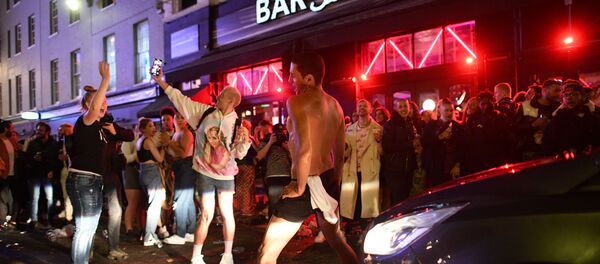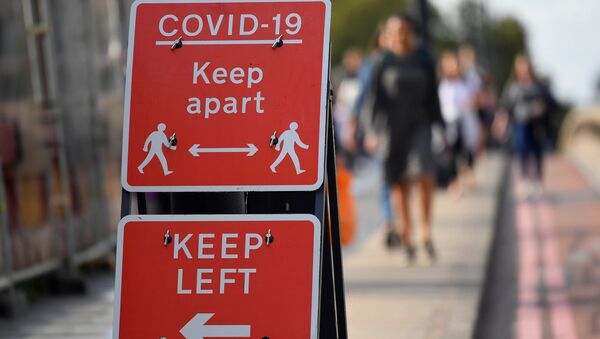Britain’s Home Secretary Priti Patel has called on the public to observe the "rule of six", a new safety measure introduced to curb the spread of the coronavirus, or risk paying fines.
"These new rules are easier to understand and easier for the police to enforce. I know that, as part of our national effort, the law-abiding majority will stick to these new rules. But there will be a small minority who do not, and the police have the necessary powers to take action against them. This disease is deadly and that is why it is right that the police enforce where people break the rules", said Priti Patel.
Previously, authorities said that people who ignore the new rules will be fined 100 pounds ($128) and those who break them again will pay double the amount, with the maximum fine reaching 3,200 pounds ($4,110). Marshals have started patrolling the streets after the rule came into force.
According to Home Office officials, those who refuse to accept the 100 pound fine will be arrested and taken to court. Moreover, those who repeatedly break the rules may face a criminal record, The Sun reported, citing an anonymous source.
What are the new COVID rules?
Gatherings of more than six people are no longer allowed in England, Scotland, and Wales. The rule applies both indoors and outdoors in England and Scotland, and indoors in Wales as well as in public places such as at pubs, cafes, and restaurants.
It applies to all ages in England, but not to children under 12 in Scotland, and not to children under 11 in Wales. The safety measure also does not apply to workplaces, schools, organised team sports, weddings, or funerals.

The new safety rules were introduced in response to a rise in infections. The coronavirus’ R rate (the number of people an infected person will pass the disease on to) in Britain has jumped to between 1 and 1.2 for the first time since March. 3,300 new infections were reported on Sunday and five people died from the disease.
However, the new rules have been criticised both by scientists and politicians. Sir Graham Brady, chair of the 1922 Committee, told Times Radio:
"It’s peak infringement of people’s liberties and their right to a normal family life. You could mitigate quite considerably by excluding younger children, the people we know who are least likely to be affected by the virus, less likely to spread the virus".
Scientists at Oxford have called the measure "catastrophic" and said it may tip the Brits over the edge, noting that there is no evidence to support the notion that it would help.
However, government scientific adviser Peter Openshaw has warned that the current rise in infections will "inevitably" result in more hospitalisations and deaths. Britain has the fifth highest death toll from the coronavirus – 41,628. Openshaw stressed that if the public doesn’t get a grip, it will risk returning to a "hard lockdown".


